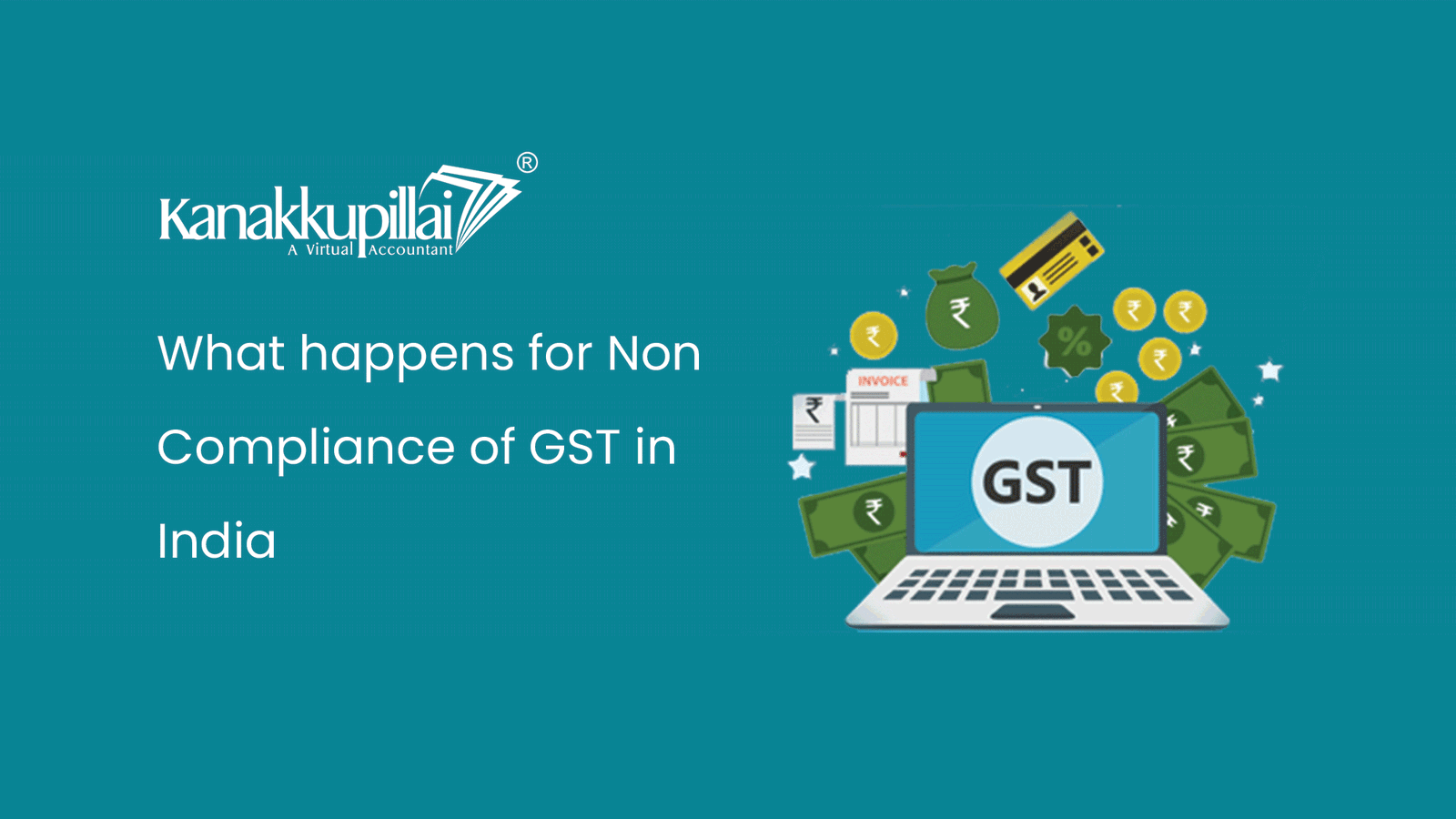GST (Goods and Services Tax) is a tax that businesses must pay for the supply of goods and services in India. It was introduced on July 1, 2017, to replace the various older taxes like VAT, service tax, and excise duty. All registered businesses must follow GST rules. If they don’t, they can face penalties, interest, and even legal trouble.
This blog explains what can happen if a business does not follow GST rules.
Penalties for Non-Compliance with GST
1. Late Filing of GST Returns
All businesses registered under GST are required to file returns regularly, including GSTR-1, GSTR-3B, and GSTR-9.
If your filing returns late:
- Late Fees: You’ll have to pay ₹50 per day (₹25 for CGST and ₹25 for SGST). If you’re filing NIL returns, the fee is ₹20 per day (₹10 for CGST and ₹10 for SGST). The fees can go up to a certain maximum limit.
- Interest: You will also have to pay 18% interest per year on the tax amount due, counted from the due date until you pay.
2. Using Fake or Wrong Invoices
Some businesses try to cheat by creating fake bills to claim extra input tax credit (ITC) or avoid paying tax.
If caught:
- Penalty: You may have to pay a penalty of 100% of the tax involved or ₹10,000 – whichever is more.
- Legal Action: If the amount of tax involved is over ₹5 crore, you can even be arrested and face criminal charges.
3. Not Paying GST or Paying Less
If you don’t pay the right amount of GST:
- Notice from Department: You will get a notice asking why you didn’t pay correctly.
- Penalty:
-
- If it was a mistake (not fraud), the penalty is 10% of the unpaid tax (minimum ₹10,000).
-
- If it was done on purpose (fraud), the penalty is 100% of the tax amount.
4. Claiming Wrong Input Tax Credit (ITC)
You can only claim ITC if you have received the goods or services and have a proper invoice.
If you wrongly claim ITC:
- Interest: You must pay 18% interest on the extra credit claimed.
- Penalty: If done by mistake, then a 10% penalty. If done on purpose, 100% penalty.
5. Not Registering for GST
If your business crosses the turnover limit and you don’t register for GST:
- Tax Liability: You must pay GST from the day you should have registered.
- Penalty: 100% of the tax amount due or ₹10,000, whichever is higher.
- Legal Action: You may also face legal problems if you continue doing business without registering.
6. Not Giving Tax Invoice
Every registered business must give a tax invoice when selling goods or services.
If you don’t:
- Penalty: ₹10,000 or the amount of tax involved, whichever is more.
7. Cancellation of GST Registration
Your GST registration can be cancelled if:
- You don’t file returns for 6 months (if filing monthly) or 2 quarters (if filing quarterly).
- You break GST rules or get registered by giving false information.
Once cancelled, you cannot legally run your business until it’s fixed.
8. E-Way Bill and ITC Blocked
If you don’t file returns on time:
- E-Way Bill Blocked: You won’t be able to generate E-Way Bills, which are needed for transporting goods.
- ITC Blocked: The government may stop you from using input tax credit until you file your returns.
9. Audit and Inspection
If the GST department suspects something is wrong, they may:
- Audit Your Business: Check your books and GST filings.
- Search and Seize: Come to your office and take records or goods if they believe tax is being avoided.
- Start Investigation: Begin legal steps, which may include penalties or criminal cases.
Conclusion
Following GST rules is important for every business. If you don’t follow the rules, it can lead to penalties, extra interest, blocked services, and legal action. To avoid trouble, make sure you file GST returns on time, pay the correct tax, and keep your records clear. It is also a good idea to take help from a tax expert or use software to manage your GST work smoothly.
By staying compliant, you not only avoid fines but also build trust with customers, vendors, and government authorities. Timely GST compliance improves your chances of getting loans, participating in government tenders, and running a business smoothly without interruptions. A disciplined tax approach ensures long-term stability and growth.
Related Services





